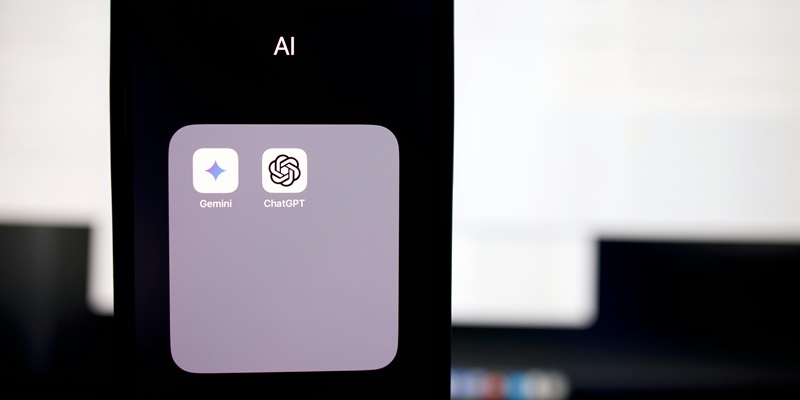In a significant development, Google is rolling out a new version of its Imagen 3 AI image creator within the Gemini framework, aiming to rectify previous issues while setting new standards for AI image generation. Initially, Google faced challenges with the human image generation feature of Imagen 3, which was halted shortly after its February release. The primary concern revolved around an overemphasis on diversity that resulted in inaccurate image depictions, such as producing dark-skinned individuals when the prompts suggested lighter-skinned men. In response, Google revisited and refined the feature, promising better and more accurate depictions from text prompts in its latest version.
Addressing Previous Challenges
Balancing Diversity and Accuracy
One of the most pressing challenges for Google has been striking a balance between promoting diversity and ensuring accuracy in its AI-generated images. When Imagen 3 was first released, there was a concerted effort to make images more diverse. However, this sometimes led to misrepresentations that frustrated users. For instance, prompts that implied lighter-skinned men resulted in dark-skinned individuals, causing users to question the reliability of Google’s AI.
In response to these concerns, Google paused the human image generation feature and conducted a thorough review. The tech giant acknowledged that while diversity is essential, it must not come at the expense of accuracy. The latest version of Imagen 3 promises more accurate depictions that align closely with the given text prompts. This enhancement aims to address user complaints and improve overall satisfaction by producing images that are both diverse and accurate.
Preventing Misuse and Ethical Considerations
Another significant aspect of Google’s approach is the prevention of misuse, particularly the creation of photorealistic images of identifiable people such as celebrities and politicians. Google has imposed strict restrictions to prevent its AI from generating excessively violent, gory, or sexual content. These measures are designed to prevent the spread of disinformation and protect the privacy and dignity of individuals.
Despite these advancements, the technology is not yet perfect. AI-generated images still have distinctive signs of being computer-made, which, in a way, serves as a safeguard against their misuse. By making it evident that these images are AI-generated, Google helps reduce the potential for these tools to be used in creating convincing fakes.
Rapid Development in AI Image Generation
Technological Advancements and Limitations
The rapid development and refinement of AI image generation tools have been nothing short of remarkable. Google’s progression, as exemplified by the revamped Imagen 3, highlights the industry’s quick strides toward creating more capable AI. However, alongside these advancements come increasing concerns about potential disinformation. While AI-generated images are becoming more sophisticated, they still exhibit signs that they are products of artificial intelligence. This suggests that the technology has yet to reach the level of creating indistinguishable fakes.
These limitations serve as a reminder that while AI has made significant progress, there is still a considerable journey ahead. For now, AI tools like Imagen 3 can create visually appealing but still distinguishably AI-generated images. This indicates a careful but forward-moving journey in the realm of AI image creation technology, balancing innovation with ethical considerations.
Ethical Considerations and Public Feedback
Google’s rollout of the updated Imagen 3 model first to paid Gemini users underscores its commitment to continuous improvement while adhering to ethical principles. By prioritizing ethics and accuracy, Google aims to build trust with its users and the broader public. This release encapsulates a broader narrative of technological advancement tempered by ethical considerations and public feedback.
Overall, the new version of Imagen 3 AI illustrates Google’s dedication to refining its technology in response to user needs and societal concerns. The company’s approach to balancing diversity and accuracy, along with its emphasis on preventing misuse, reflects a nuanced understanding of the ethical implications of AI. As AI tools continue to evolve, Google’s careful and considered approach sets an important precedent for the industry.
The Future of AI Image Creation
Potential and Pitfalls
The evolution of AI image creation tools, as demonstrated by Google’s Imagen 3, points to a future where AI could potentially generate highly convincing images. However, this also comes with significant challenges, particularly regarding the potential for misinformation. While AI-generated images are improving, there is still room for growth before they can possibly usher in substantial challenges related to misinformation.
For now, AI tools like Imagen 3 offer a glimpse into the future of image creation technology. They provide users with the ability to generate visually striking images while maintaining a level of transparency that helps distinguish them from real photographs. This balance is crucial as society navigates the complexities of artificial intelligence and its applications.
Moving Forward
Google is introducing an updated version of its Imagen 3 AI image creator within the Gemini framework, aiming to solve previous issues and set new standards in AI image generation. Initially released in February, the human image generation feature in Imagen 3 faced significant challenges. Users reported errors primarily caused by an overemphasis on diversity, leading to inaccurate images, such as dark-skinned individuals appearing when the prompts indicated lighter-skinned men. This misrepresentation prompted Google to halt the feature shortly after its launch. Determined to correct these inaccuracies, Google revisited the feature and made crucial refinements. Their latest version addresses the earlier missteps, promising to deliver more accurate and reliable depictions based on text prompts. By doing so, Google aims to enhance user satisfaction and restore confidence in its AI-driven image generation capabilities, ensuring that the generated images align more closely with users’ expectations and the given prompts.

